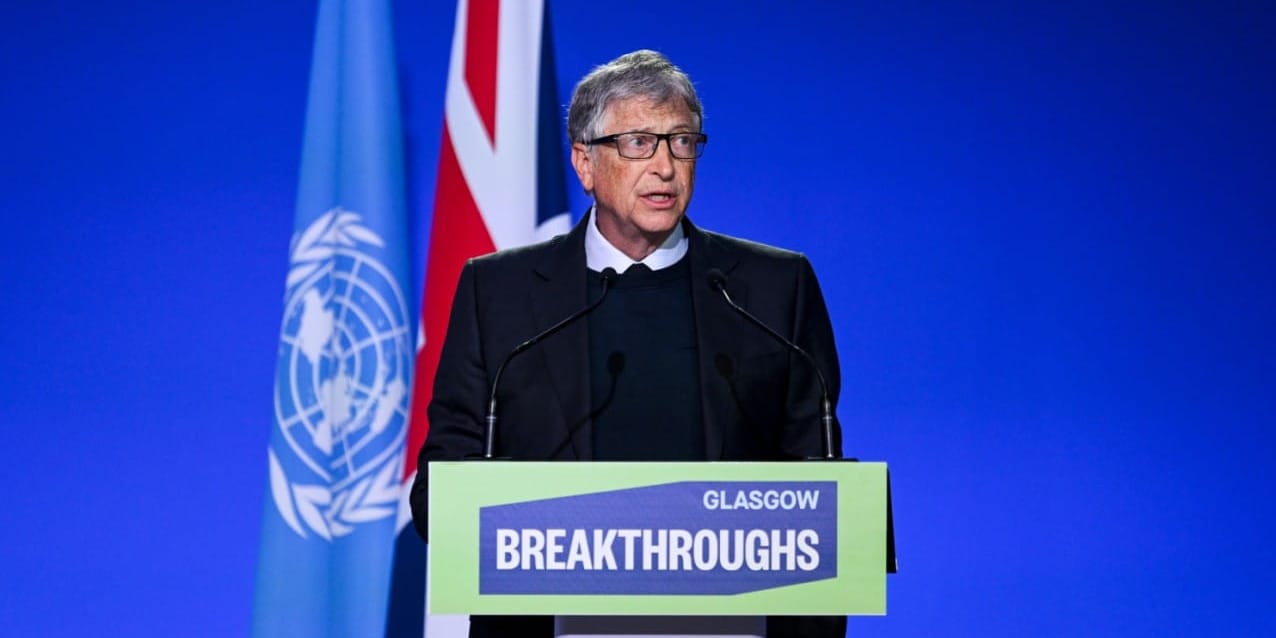Bill Gates Shares Hopeful Vision for Climate Tech: Innovations and Future Breakthroughs
Gates expressed his amazement at the advancements achieved by Breakthrough Energy, highlighting the successful scaling of numerous companies with innovative solutions
Bill Gates, co-founder of Microsoft and a leading climate philanthropist, recently discussed the ongoing efforts and challenges in addressing the climate crisis during an episode of "Leaders with Lacqua Goes Green." Gates, who founded Breakthrough Energy nearly a decade ago to invest in emerging climate technologies, provided an insightful update on the progress made and the hurdles that remain.
Gates expressed his amazement at the advancements achieved by Breakthrough Energy, highlighting the successful scaling of numerous companies with innovative solutions. He emphasized the need for comprehensive technological solutions across all sectors, including buildings, agriculture, industry, electricity, and transport, to effectively reduce emissions.
One notable point from the discussion was Gates' excitement about the potential of nuclear fission and fusion, which he described as "magical" for their ability to provide consistent, weather-independent energy. He also mentioned the importance of new technologies like advanced windows that improve energy efficiency.
Despite the promising innovations, Gates acknowledged the significant challenges in deploying these technologies at scale. He cited bottlenecks in financial backing, permitting processes, and grid connectivity as critical issues that need addressing. However, he remains optimistic, pointing to the progress made in power generation, manufacturing, and building efficiency.
When asked about the biggest bottlenecks to scaling climate tech, Gates noted that in 2015, the primary issue was the lack of viable ideas for reducing emissions in key sectors like steel and cement. Today, the challenge has shifted to deploying these ideas on a large scale, including securing funding for early projects and ensuring seamless integration into existing infrastructure.
Gates also touched on the role of artificial intelligence (AI) in climate solutions, highlighting its potential to optimize systems, improve efficiency, and contribute to breakthroughs in material science and food production. While acknowledging AI's increased energy demands, he believes the technology's benefits in driving the energy transition will outweigh its environmental impact.
Regarding carbon capture, Gates was cautious but hopeful. He emphasized that while carbon capture is unlikely to be a primary solution, it could still play a role in hard-to-abate sectors if costs can be significantly reduced.
Reflecting on the broader climate fight, Gates admitted the world is falling short of its net-zero goals but remained hopeful. He pointed to the innovation and progress achieved over the past nine years as a reason for cautious optimism. Gates also discussed the importance of international collaboration and policy reform to accelerate the deployment of climate technologies.
In closing, Gates shared his thoughts on the personal sacrifices and vices related to climate change. He acknowledged that flying is his biggest climate vice but emphasized his commitment to funding and supporting technologies that drive emissions reductions and create demand for sustainable solutions.
Bill Gates' insights underscore the complexity of the climate crisis and the multifaceted approach needed to address it. His optimism and dedication to innovation offer a hopeful vision for a sustainable future, even as the world grapples with the immense challenges ahead.






